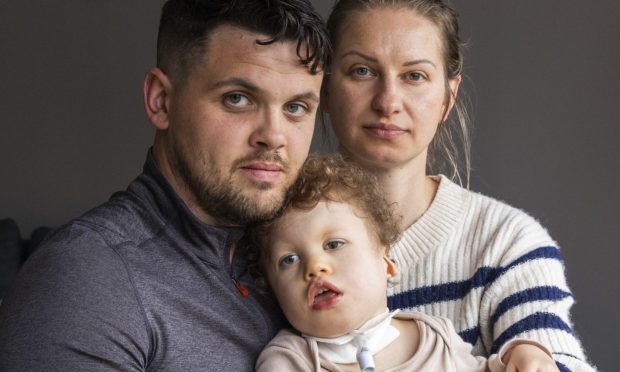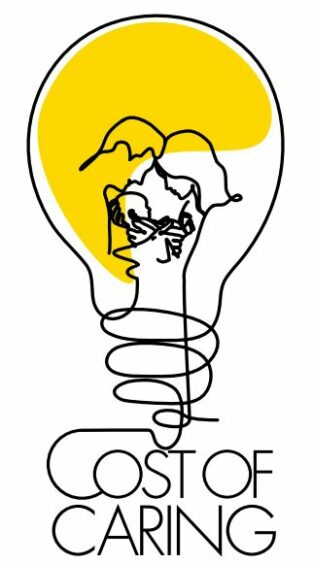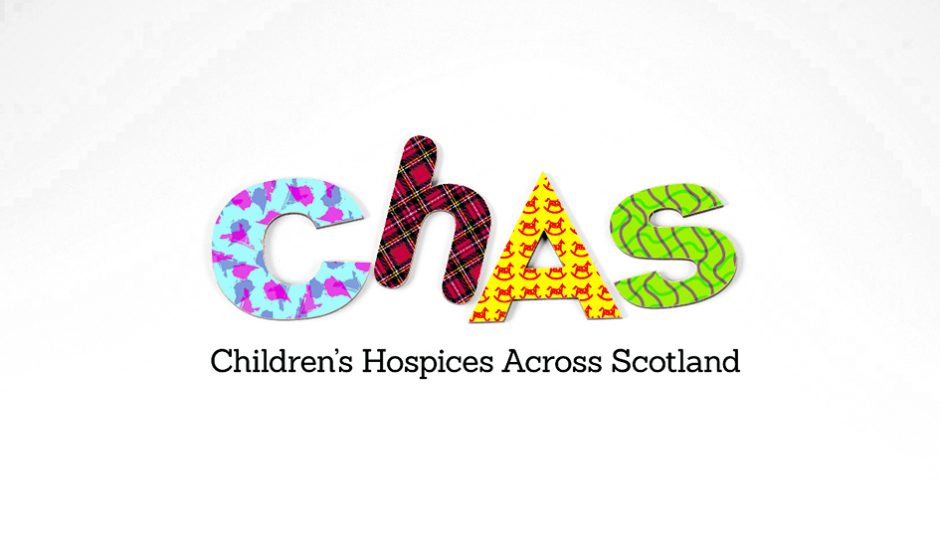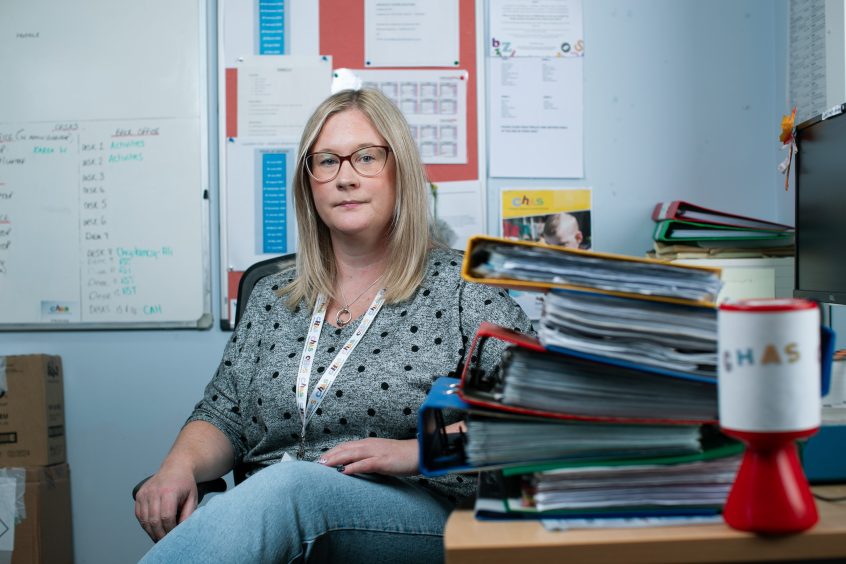
The Royal College of Nursing Scotland has added its support to the campaign to give families of seriously sick children help with energy bills.
The leading nursing union, with more than 40,000 members, is the latest royal college to call for an urgent introduction of an energy tariff to lower crippling bills.
Colin Poolman, director of RCN Scotland, said: “Families across Scotland are struggling to cope with the cost of energy.
“Cutting back on energy use isn’t an option when it’s keeping your child alive.
“Nursing staff daily see the impact this has on families already under significant pressure, which is why we are adding our support for actions to mitigate the cost of energy for families in this situation.”
The RCN Scotland joins the Royal College of Paediatrics and Child Health (RCPCH), the Royal College of Physicians of Edinburgh (RCPEd), CHAS children’s hospices, Young Lives Vs Cancer, the Poverty Alliance, Carers Trust Scotland and others in demanding the immediate introduction of a social tariff for our most vulnerable families.
The Sunday Post recently revealed the heartbreak of Thomas and Lizzie McCartney, from Rosyth in Fife, who have a bill of more than £5,000 after caring for her much-loved son, Marley, at home. He passed away last autumn aged 12.
Marley had survived a near cot death and cardiac arrest as a baby and was dependent on 24-hour care at home.
We told of the plight of Ashley Sim, from the Borders, who cares for her daughter, Natalya, 11, who has an inoperable brain stem tumour.
The stoic mum owes her energy supplier almost £4,000 in heating costs run up caring for her terminally ill daughter at home.
We also told the story of the serious challenges Max and Kasia Nisbet, from Bo’ness in West Lothian, face in paying for energy bills to care for their son, Troy, two. Troy has major heart defects, is deaf, has restricted sight and is tube-fed.
Expensive energy bills seriously impact on Carolynne Hunter as she cares for her daughter, Freya, 13, at home in Clackmannanshire. The young teenager has cerebral palsy and relies on oxygen from an electricity-powered life support system.
The families are supported by CHAS.
Oscar-winning actress Kate Winslet helped the family after they launched a social media fundraiser for bills.
CHAS welcomed Winslet’s financial support but added that they are one of hundreds of families struggling to survive high energy bills.
Rami Okasha, CEO of CHAS, said: “Celebrities shouldn’t have to step in where governments have not.
“A good next step would be for the Scottish Government to enable families to recoup the running costs of life-saving equipment.”

Scottish Energy Minister Gillian Martin said: “With average energy bills still nearly twice what they were two years ago, I am acutely aware that many thousands of households continue to face significant hardship.
“The Scottish Government is continuing to do everything we can within our limited powers to support as many people as possible. We trebled our Fuel Insecurity Fund to £30 million this year, and the bulk of this is set to be distributed throughout autumn and winter so that those who are most at risk of self-rationing or self-disconnecting get tangible help when they need it most.
“We have allocated £9m to Advice Direct Scotland to continue delivery of their successful Home Heating Support Fund this year, which now offers up to £1,700 per household.”
Financial aid
It takes courage to ask us for help, but many families are at rock bottom
Every week, Melanie Cross of CHAS children’s hospices in Scotland reaches out a lifeline to help 50 families of desperately ill children cope with money problems.
The CHAS family income maximisation officer and mother of two describes an average working day.
It is 9am and already a caseload of calls, emails and texts have arrived from families with crippling energy bills, council tax arrears and rent.
She reveals that the bigger the family’s debt to an energy company, the less likely they are to get home heating support fund assistance, run by the Scottish Government.
“Their home heating assistance policy only helps those in debt to £1,500,” she adds.
Heating bills are twice the average family’s because they cannot turn down the heating on their sickly children or turn off the electrically driven hoists, ventilators and other vital medical equipment.
She says some of the children are at home on end-of-life care. Others are struggling to survive tragic illnesses they have been born with or developed in their short years of life. They include cancers and heart defects.
“By 10am I have already helped a family challenge a decision to award them the lower rate of Child Disability Payment and tried to source supermarket food vouchers for a mum who wonders how she can feed her family,” Melanie says.
“Their child survived a major heart defect and has other serious disabilities which means they are entirely dependent on their parents, 24 hours a day.”
It is almost noon and she moves on to help a family whose child is heading for end-of-life care.
“The dad, a driver with a large transport firm, needs to cut his hours of work to be with his child in his final weeks or months of life.
“That means a cut in the family’s income and the fears over how they are going to buy food for their three children.”
Help comes in a lifeline gifted by a family previously helped by CHAS.
“We have a fund given by a family we helped some time ago and often use it to buy grocery vouchers,” she adds.
“Several families we support are at rock bottom, financially.
“They worry about a child’s future while under pressure with big bills, and all on average or below average income.”

She believes that a social tariff or targeted government support for lower energy bills would go a long way to helping these families.
Ironically, the bigger the family’s debt to an energy company, the less likely they are to get home heating support fund assistance, run by the Scottish Government.
At 2pm she is answering a call from a family owing a large supplier £2,000. “Only those with debt of under £1,500 can get assistance because those over that sum are deemed to be likely to have other debt and are referred on to money advice services.”
Some parents have so much debt, they are often out of reach of official support.
“After years of caring for their child, and sometimes too when the medical condition is inherited, they can stack up debt from many areas,” she adds.
At 2.45pm she assists with a heating bill. Negations with the big energy company have seen them denied support from its own assistance fund, despite the company’s big annual profits.
At 3pm a family call to say they may have to sell their home to pay for mounting debt.
“They feel downsizing may be a solution to mounting bills, but their existing house is already too small for their family of two children.
“Their daughter needs considerable support at home because of her medical condition.
“Our families are from all walks of life, in everyday jobs the rest of us rely on daily.
“They drive lorries, buses, taxis, deliver our mail but are unable to cope with huge financial worries.”
At 4.10pm she is helping a family get a wheelchair and adaptable bed for their son. His walking has deteriorated in the past few months and he is desperate to lead a normal life like other youngsters.
Come 5pm, the messages are still arriving by email.
“It takes courage for families to ask CHAS for help because they are proud parents who desperately want to cope on their own,” Melanie adds.
The letter
The continuing very high cost of domestic energy impacts everyone but few more so than the families of children with terminal or life-limiting illnesses.
These parents and carers are unable to turn down, or switch off, the heating or limit energy use while striving to give a good level of care to their vulnerable children.
They are also unable to switch off, or down, necessary ventilators, hoists, beds or other medical equipment vital to keep their children alive. Consequently, these families undoubtedly pay higher energy bills and are doubly compromised by often having one parent or carer unable to work to supplement the family income because of the full-time care their child needs.
They include a number of average-earning parents struggling to perform the extraordinary duties of caring for our most vulnerable children.
Few would argue that they should also be additionally burdened emotionally with high energy bills and accumulated debt, as a number of these families now are.
We are calling on the UK and Scottish governments to take immediate measures to mitigate the cost of energy for families in this situation, including the introduction of a social tariff for energy bills.
Remember to claim £150 discount on energy bills
By Russell Blackstock
Vulnerable Scots are being urged not to miss out on £150 worth of help with their energy bills with the reopening of a UK Government scheme.
The winter Warm Home Discount will resume on October 16 and certain pensioners should automatically have a rebate applied to their bills.
Unlike England and Wales, many low-income families in Scotland still need to apply, with payments made on a first-come, first-served basis.
Advice Direct Scotland, the national energy advice service, is encouraging individuals to check with their suppliers to ensure they receive the additional support they need.
Hazel Knowles, energy project team lead, said: “We know many Scots face a challenging winter ahead.
“It is therefore more important than ever that households claim all the support they are entitled to.”
The charity has reminded households to apply as soon as possible, as energy companies have a limited pot of cash to distribute, and they should check with them even if they were eligible for a discount last year.
The Warm Home Discount is designed to help those on low incomes and who live in older, colder homes, such as those with poor insulation.
Consumers in receipt of the Guarantee Credit portion of Pension Credit should automatically receive a letter informing them about the discount, with the rebate applied to bills between October and March.
Those on a prepay meter usually receive a top-up voucher.
Additionally, those on certain benefits may also qualify for support and must apply to their energy supplier. This group includes those in receipt of Universal Credit, Income Support, Employment and Support Allowance, Jobseeker’s Allowance or Housing Benefit.
Those with a household income that falls below £17,005 and receive either Child Tax Credit or Working Tax Credit could also qualify.
Energy suppliers can choose to offer the discount to more customers based on additional criteria, and Advice Direct urges checking with your supplier to see if you might be eligible.
If you live in a park home and pay a site owner for electricity instead of an energy firm, you may still be able to get £150 towards your energy bills via the separate Park Homes Warm Home Discount scheme.
Knowles said: “We would urge Scots to check their eligibility for the Warm Home Discount and apply to their supplier as soon as possible before funds are exhausted.
“Those who get the Guarantee Credit element of Pension Credit should receive a letter letting them know when to expect their discount.”
She added: “If you need help or are having any difficulty reaching your supplier, our qualified team can assist in getting the right support through the energyadvice.scot service, or you can call 0808 196 8660 for assistance.”

Enjoy the convenience of having The Sunday Post delivered as a digital ePaper straight to your smartphone, tablet or computer.
Subscribe for only £5.49 a month and enjoy all the benefits of the printed paper as a digital replica.
Subscribe © Andrew Cawley
© Andrew Cawley